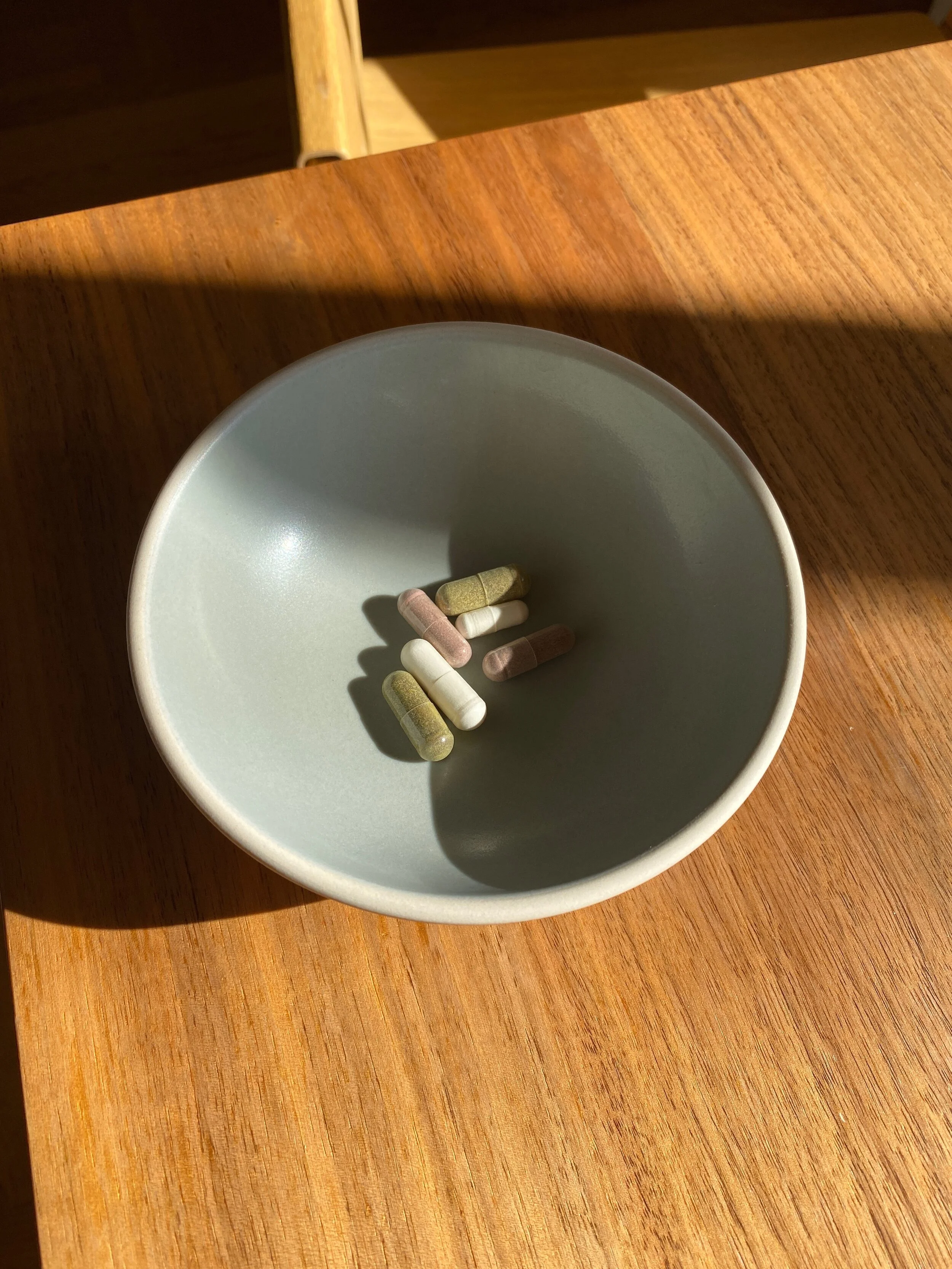There is no one size fits all approach when it comes to supplements. The best supplement protocols are individualized and contain high quality supplements with the right dosage. Not all supplements are created equal, and not everyone needs the same support. I have seen the right supplement protocol be the missing piece in shifting a patient’s health.
How do we come up with a supplement protocol? Depending on the patient, their symptoms and health history - sometimes I can make suggestions based on their symptoms or goals of supplementation. Examples of supplement goals include: boosting the immune system, increasing energy, decreasing the effects of stress on the body, reducing inflammation, improving digestion, and more. Other times, testing is necessary. For more information on what functional medicine testing I now offer, read this post. Next step after determining what kinds of vitamins, nutrients or herbal medicine would be supportive, is choosing the specific brand, product and dosage.
Not all supplements are created equal. One reason a supplement hasn’t helped you could be due to the quality. There are a few key differences between store grade and pharma grade supplements (the supplements that I prescribe):
Bioavailability of the active ingredients: This means the form of the vitamin, nutrient or herb is something that your body is able to absorb and use. For example, folic acid is a synthetic form of folate which your body has trouble using and can build up in your system. Folate is the natural form that your body can use.
Formulations: Pharma grade supplements usually offer the most helpful combinations of vitamins, nutrients or herbs. Sometimes the combination of active ingredients can make a vitamin more effective. For example taking Vitamin K2 with Vitamin D3 helps your body utilize Vitamin D for bone and cardiovascular health.
Added ingredients and fillers: Store grade supplements often contain fillers/dyes/binders that are not healthy or can cause digestive distress. Pharma grade supplements don’t include these and are also more likely to fit dietary requirements like gluten free, etc.
Dosage: The right dosage matters. I find that many store grade supplements often don’t have high enough amounts of the active ingredients to support the health changes we are trying to see. When choosing the right supplement I always look at dosage of each individual active ingredient, and pick the best pharma grade option.
And lastly, a few tips for taking supplements: take your vitamins with food! Otherwise they can cause nausea. Herbal supplements can usually be taken with or without food. Most vitamins you want to take with breakfast or lunch because they can give you energy. The one big exception is magnesium, which is great for relaxation and I encourage patients to take with dinner. It’s best to take all supplements and herbs two hours away from medications. As always, this is general guidance and please follow the instructions that myself or another practitioner has given you in your supplement protocol.

